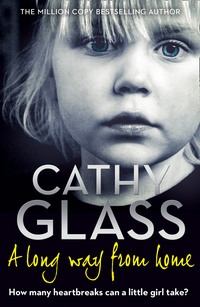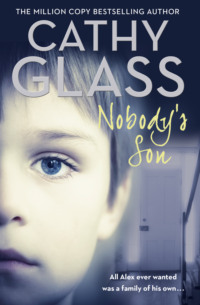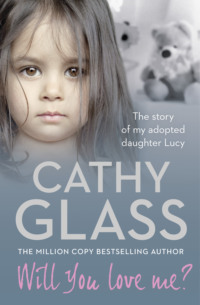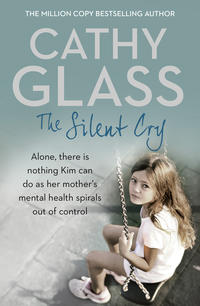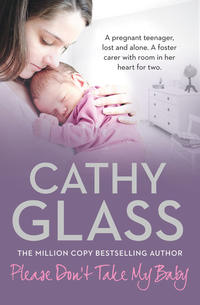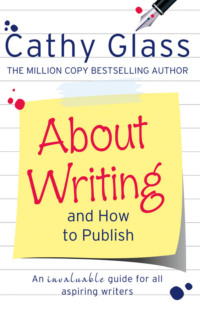
Полная версия
Innocent
I waited. I could hear the low tone of the manger’s voice as she talked steadily and calmly to Aneta. The centre emptied and gradually Aneta’s hysteria eased. The children stopped crying too. Fifteen minutes or so later the door opened and the contact supervisor appeared with Molly and Kit. ‘Take them now and leave,’ she said, urgency in her voice. I could see past her to where Aneta was sitting on the sofa, Filip on one side and the manager on the other, leaning into her.
‘This is for you,’ the contact supervisor said, handing me a carrier bag. ‘It’s the children’s medicines. In case they’re ill. There’s a lot.’
‘Oh,’ I said, surprised. ‘Does anything have to be taken now?’ It hadn’t been mentioned.
‘I don’t think so. Aneta said to follow the instructions on the packet.’
I hung the bag over my arm and took the children by the hand. At that moment Aneta seemed to realize what was happening and with a shriek of sheer distress like a wounded animal she made a dash for the door. Filip shot after her and grabbed her. The last image the children had of their parents was of their mother, her face twisted in anguish, being restrained by their father. It was an image that would stay with them for a very long time.
Chapter Six
I Want Mummy
I hurried out of the Family Centre with the children and to the car, the carrier bag of medicines weighing heavily on my arm. ‘I feel sick,’ Molly said, and, leaning forward, she vomited onto the pavement.
‘It’s OK, love,’ I soothed gently. ‘Don’t worry. You’re just upset.’ I assumed that was the reason, and smoothed her hair back as she vomited again. ‘Take a few deep breaths,’ I told her. She did, and then slowly straightened. ‘Do you feel a bit better?’
She nodded. ‘Good girl.’ I took a wipe from the bag and cleaned her face and hands. I had one eye on the door to the Family Centre, hoping the parents wouldn’t leave until the children were safely in the car. Kit was looking very anxious too.
‘It’s all right, love,’ I reassured him. ‘Molly’s better now.’
‘I am better,’ she told him.
‘Big girl,’ I praised her. She was being so brave; most children her age would panic if they were sick, but she seemed to be coping very well.
‘Can I have some water?’ she asked.
‘Yes, of course.’ I took the water bottle from the bag and handed it to her.
She took a few sips and passed it back. ‘Mummy gives me water when I’m sick.’
‘Do you feel well enough to get in the car now?’ I asked.
‘Yes,’ came her small reply.
I helped them both into their seats and fastened their harnesses. ‘OK?’ I asked her again.
‘Yes.’ She managed a small smile. It was the first time I’d seen her smile and I kissed her cheek.
‘It’s like being at home,’ she said. I guessed she meant my kiss.
‘Does Mummy kiss your cheek?’
‘Yes. After I’ve been sick she gives me lots of kisses.’
‘To make you feel better.’ I smiled. ‘Are you often sick?’
She nodded. ‘Lots.’
‘Don’t worry. We’re going to try to find out what’s making you sick and stop it.’ I kissed them both and then closed their car door and got into the driver’s seat. Just in time, for as I pulled away Filip and Aneta came out of the Family Centre, heads down and looking dejected. I felt sorry for them, I really did, but if they were all going to enjoy contact Aneta would need to make a big effort to contain her emotions – as Filip had done – for the sake of their children. Making a child leave contact so distraught that she had vomited was unkind and couldn’t be repeated. It was of course possible that it wasn’t distress that had caused Molly to be sick, but at that point it seemed the most likely cause. She wasn’t showing any signs of an allergic reaction and the sickness had passed quickly. She’d wet herself twice yesterday from distress and now she’d been sick. Young children can’t verbalize or deal with their distress in the same way adults can, so it comes out in physical ways or through challenging behaviour. When I got home I’d enter everything I’d given the children to eat and drink in the food diary, although I was pretty sure that Molly vomiting now was from upset.
As I drove, I kept glancing at the children in the rear-view mirror. The colour had returned to Molly’s face and, while not laughing, they had both calmed down. They were pale-skinned anyway, but Molly had gone as white as a sheet earlier when she’d been sick. About five minutes from home they both fell sleep – exhausted from a disturbed night and the distress at contact. I felt bad waking them, but they needed dinner before they went to bed, so, once parked on the drive, I gently woke them, then helped them out of the car. I let us in to the welcoming smell of spaghetti bolognese. Lucy and Paula appeared in the hall. ‘Dinner’s ready,’ Paula said.
‘Thank you so much.’
Both girls took over and I was so pleased to have their help. They slipped off the children’s jackets and shoes and carried them to their chairs at the dining table. Five minutes later we were all eating. A large plate of spag bol was in front of me, topped with parmesan and garnished with salad, together with a mug of tea. I was truly grateful.
‘Thank you so much,’ I said again.
When we fostered older children or teenagers there was a limit to how much help my children could give, but now, with two little ones, they came into their own. Lucy fed Kit and Paula helped Molly, who seemed none the worse for her ordeal and ate.
‘This is delicious,’ I said, and made a mental note to include the ingredients in the children’s food diary.
‘I’m collecting a car tomorrow,’ Adrian announced as we ate.
‘Are you?’ I knew he’d been saving for a car for a while, but I didn’t know he’d been looking for one. The old banger he’d had at university had given up some time ago.
‘It belongs to a guy at work,’ he said. ‘It was his elderly mother’s, but she died and he wants to get rid of it quickly. It’s only done a few miles. It’s a bargain.’
‘Sounds good,’ I said.
‘As long as her ghost doesn’t haunt it,’ Lucy put in.
Adrian paused from eating to look at her. ‘How does a ghost stay safe in a car?’ he asked. I’d heard this joke before but couldn’t remember the punchline. Neither apparently could Lucy or Paula.
‘Go on, tell us,’ Lucy said.
‘Puts on its sheet belt!’ Adrian said. We all laughed.
‘What’s a ghost’s favourite dessert?’ Paula asked.
‘I scream,’ Adrian replied. ‘What kind of roads do ghosts haunt?’
There was silence as we thought. ‘Dead ends,’ he said, and we groaned.
‘What did the polite ghost say to her child?’ Lucy asked.
I knew this one. ‘Don’t spook until your spooken to!’ I said. We laughed again and little Kit chuckled. He obviously didn’t know what he was laughing at as he was too young to understand the jokes, but it was lovely to hear him chuckle and see his little face light up. However, when I looked at Molly I saw she was anxious. ‘Are you all right, love?’ I asked, wondering if she was feeling ill again.
‘We’re not allowed to laugh when we eat,’ she said seriously. ‘Mummy says it makes us sick.’
‘That’s sensible,’ I said. Although it seemed a bit harsh to me – never laughing at the meal table. I guessed Aneta worried more than the average mother about her children because they’d been ill so often. When I’d fostered a child with severe asthma, I was very watchful and overprotective. It was only natural as a parent or carer.
The children looked exhausted, so once we’d finished eating I said it was time for their bath and bed. Lucy and Paula were keen to help and came upstairs with me, while Adrian said he’d see to the dishes and was going out later. In the bathroom it soon became clear that I was superfluous, as Lucy and Paula took over. I hung around as they bathed the children, dressed them in their pyjamas and brushed their teeth. Once in their bedroom, Paula sat on Molly’s bed to read her a story while Lucy settled Kit in his cot.
‘You go down and get on with what you need to do,’ Lucy said. ‘We’re OK here.’
‘Yes, go on, Mum,’ Paula encouraged. ‘We can manage. We’ll call you if we need you.’
‘OK, thanks.’ I kissed Molly and Kit goodnight and came out, leaving their bedroom door open. I had a long list of things I needed to do so was grateful for the opportunity.
Downstairs, Adrian was in the hall about to go out and I thanked him for his help.
‘See you tomorrow,’ he said, kissing my cheek. ‘I expect you’ll be in bed before I’m back.’ It was Friday and he and Kirsty usually went out somewhere.
I wished him a good evening and told him to say hi to Kirsty for me, and then I went into the kitchen. First, I wanted to sort through the bag of medicines I’d been given for Molly and Kit. The contact supervisor had said she didn’t think any of it was needed now, so I’d put the bag on a top shelf in a kitchen cupboard while we’d had dinner. I now took it down and began to go through the contents, taking them out one at a time, reading the labels and placing them on the work surface. It soon looked like a mini pharmacy with all the bottles, screw-top jars, packets and so on. There was antihistamine syrup to control allergic reactions, antihistamine cream in a tube, medicine to control sickness, Calpol for reducing fevers and high temperature, cough syrup, vitamin drops, eye drops, ear drops, nasal spray, laxatives, antiseptic cream, medicine for colic, stomach upsets, diarrhoea, sachets to rehydrate after sickness or diarrhoea, and so on. There was also an inhaler for asthma, although asthma hadn’t been mentioned. I counted forty-five items.
All the medicine was relatively recent and in date, some had been used while other bottles and packets remained unopened. A few items had been prescribed by a doctor or the hospital, but most of it had been bought over the counter. There was also a syringe for giving liquid medicine to very young children. None of it was needed now; they were used to treat symptoms as and when they appeared. There was nothing wrong with Molly and Kit as far as I knew – Molly was over her sickness and hadn’t developed any other symptoms – so they didn’t need them. I couldn’t fit all these items in my lockable medicine cabinet, and I thought they should all be kept together in one place, so, repacking the bag, I labelled it Molly and Kit’s medicine and returned it to the top shelf of the cupboard. Was this amount of medicine excessive? Yes, I thought so, although the children had been ill an awful lot, so I guessed Aneta liked to be prepared.
On my list of things to do was to start a food diary. I opened an exercise book, divided the page into two, then wrote Molly’s and Kit’s names at the top of each column and listed everything they’d had to eat and drink since they’d arrived yesterday. I also noted beside Molly’s entry that after contact she’d been sick and wrote, Due to upset? I would also note this in my log when I wrote it up later, and mention it to Tess when I spoke to her. Having brought the food diary up to date with this evening’s meal I left it in the kitchen where it could be seen as a reminder to fill it in.
I went into the front room and switched on the computer to read my emails. I prefer the large screen of the desktop computer to my phone and it was where I stored important files. As it sprung to life Paula and Lucy crept downstairs and into the front room. ‘They’re both fast asleep,’ Lucy whispered. ‘They were exhausted.’
‘Thank you so much. Was Molly all right? She’s not feeling sick again?’ I asked.
‘No, she seems fine,’ Paula said. ‘She said she missed her mummy, but I told her she’d see her soon.’
‘Thank you both,’ I said again. ‘Now you can chill.’ It was their Friday evening and they disappeared into the living room to stream a film, as I concentrated on the computer screen.
Tess’s email came through with the Essential Information Form attached. The social services, like many organizations, were trying to go paperless and I now had a folder on my computer for files relating to the children I was fostering as well as a physical folder. I was still keeping my log notes in a book; most foster carers were, simply because it’s easier to pick up to add to during the day, although many forms were now completed and stored online.
I read Tess’s email first. She’d arranged a medical for Kit and Molly for 1 p.m. on Monday and contact for 3–5 p.m. that afternoon. Then contact would be every Monday, Wednesday and Friday. Fetching my diary, I entered all of this and then picked up the appointment card for the fracture clinic. It was for 10 a.m. on Monday. With the hospital appointment, the medical and contact, Monday was full. I now read the printout from the hospital on the care of a plaster cast. The main points were that the cast should be kept dry, the patient’s fingers exercised by wriggling, and to contact A&E if extreme pain or numbness were experienced or if the fingers became blue, swollen or began to discharge. I’d keep an eye on Kit’s hand, but so far it looked good. I now opened the Essential Information Form that Tess had sent, which should give me some background information on the children to help me care for them.
It was a standard form and began with the children’s and parents’ full names, home address and dates of birth. In the box about other family members it showed that Aneta had a mother and sister living abroad but they weren’t in contact. Filip had no close family members. Ethnicity was given as British, language as English and beside religion it said none. The children’s legal status was an interim care order, and beside school or nursery was written none. Next was the contact arrangements – which I’d already taken from the email – followed by special health concerns: The mother claims that both children suffer from multiple and undiagnosed allergies, which can result in vomiting, diarrhoea, rashes, bruising, difficulty in breathing (so I guessed that was why an inhaler was in their bag of medicines) and seizures – that hadn’t been mentioned before either. I paused, very concerned. I’d need to ask Tess for more details about the seizures, how often they occurred and how long they lasted. I’d also have to let the rest of the family know and check they knew what to do if Kit or Molly did fit. I had a first-aid certificate – all foster carers do – and Lucy had one because she worked in a nursery. However, I knew from experience how frightening it can be to see someone fit, so I needed to have a chat with my family to make sure Paula and Adrian knew what to do too.
I returned to the form and the entry about the children’s health: Kit sustained a broken arm and has bruising and swelling to his face – which I obviously knew. The next point and those following were more relevant to older children: Behaviour problems? Did the young person drink, smoke or take drugs? No had been entered by each one. Apart from the section on health, the Essential Information Form hadn’t really told me much more than I already knew, largely, I thought, because the social services hadn’t been involved with the family until the start of the week.
My gaze returned to the comments in respect of the children’s health, particularly about the undiagnosed allergies. These applied to both children. Aneta wouldn’t make all this up, so I wondered if the children could be suffering from a rare genetic condition that hadn’t yet been identified. I knew nothing about the testing that had been done to try to establish what triggered the reactions, only that the cause was ‘undiagnosed’. I then did what many of us do now and consulted to Dr Google. I typed allergic reaction resulting in vomiting, diarrhoea, rashes, bruising, seizures, difficulty in breathing into the search engine. Pages of websites came up. I began reading and soon discovered that there were over eighty allergic reactions that could produce symptoms of fever, nausea, vomiting and skin rashes – indeed, these were the most common reactions to allergens. But I also found that a purple-blue rash like a bruise could appear in a few bad allergic reactions and they were genetic. However, these severe rashes lasted four to six weeks, which wasn’t what Aneta had described at all. She’d said the symptoms came and went quickly. I was about to continue my research when I heard Kit’s plaster cast bang against the cot side, followed by his startled cry. I went straight upstairs. Kit was standing up in his cot, his little face puckered into tears.
‘It’s all right, love,’ I said, picking him up and holding him close. ‘There, there,’ I soothed. Molly slept on in her bed close by. It occurred to me that cot bumpers would have cushioned the blow when Kit’s plaster hit the sides, but they were now deemed unsafe as some infants had tragically become entangled in them and suffocated.
Eventually Kit began to relax against me and his eyes grew heavy and closed. I lay him on his side in the cot and gently rubbed his back. I also had a closer look at his arm in the plaster cast. I could see by the dimmed light that his hand and fingers were a healthy colour and weren’t swollen so I didn’t think it was causing him a problem, apart from being uncomfortable and hitting the cot when he turned over. After about ten minutes of rubbing his back, he appeared to be fully asleep and I crept from the room. I’d just got outside when I heard his startled cry again and went straight back. Not quickly enough. He’d woken Molly. ‘I want my mummy!’ she cried, sitting bolt upright in bed.
‘It’s OK, love, you’ll see her soon,’ I said. ‘Lie down and go back to sleep.’
Molly lay down but didn’t go back to sleep. ‘I want my mummy!’ she cried over and over again.
I picked up Kit and held him on my lap as I sat on the edge of Molly’s bed and calmed her too. If a child who has been with me for some time wakes at night I go into their room, resettle them and come out, and repeat until they’re asleep. But this was only Kit and Molly’s second night in a strange room and Molly had been sick earlier, so I stayed with them. ‘Do you feel all right?’ I asked her.
‘No, I want my mummy,’ she said plaintively.
‘I know you do, love, and you’ll see Mummy and Daddy soon. But now I want you to get some sleep.’ I tucked her soft toy in beside her and stayed sitting on the bed, soothing Molly and gently rocking Kit back to sleep.
Time passed and eventually they both appeared to be asleep. I carefully stood and returned Kit to his cot. He licked his lips, murmured something and turned over but didn’t wake. I waited a few more minutes to make sure neither of them woke, and then crept out. It was now 10.30 p.m.
Downstairs, I shut down the computer, then stayed in the front room and wrote up my log notes. Ten minutes later Lucy and Paula finished watching their film and came into the front room on their way upstairs to bed. I reminded them to be quiet as Molly and Kit’s bedroom door was open. Telling me I should wake them if I needed help in the night, they kissed me goodnight and went up. I finished writing my log notes, put Sammy to bed, then went upstairs too. I checked on Molly and Kit and they were both fast asleep. I then lay in my bed listening out for them. Around midnight I heard Adrian quietly let himself in and then nothing more until 2 a.m., when Molly and Kit woke. I managed to settle them reasonably quickly without waking the rest of the house and they then slept until 7 a.m. – a huge improvement on the night before. However, as soon as Molly woke she was in tears. ‘I want my mummy,’ she sobbed. ‘When can I see Mummy? I want to go home.’ Seeing his sister so upset made Kit cry. ‘Mummy, Mummy,’ he wailed. So at 7 a.m. on a Saturday morning I had two children on my lap, crying their hearts out for their mother. I felt like a wicked witch.
Конец ознакомительного фрагмента.
Текст предоставлен ООО «ЛитРес».
Прочитайте эту книгу целиком, купив полную легальную версию на ЛитРес.
Безопасно оплатить книгу можно банковской картой Visa, MasterCard, Maestro, со счета мобильного телефона, с платежного терминала, в салоне МТС или Связной, через PayPal, WebMoney, Яндекс.Деньги, QIWI Кошелек, бонусными картами или другим удобным Вам способом.


